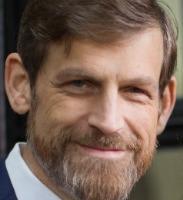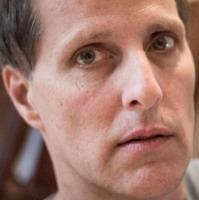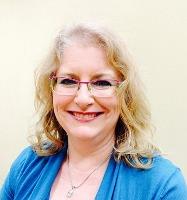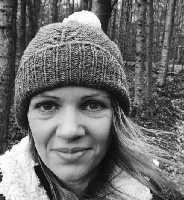Blog
Unless otherwise stated, content is shared under CC-BY-NC Licence
The only archival digital document format
Duff Johnson is Executive Director of the PDF Association and Project Leader for ISO 32000 in Winchester, Massachusetts, USA
What is a “document”? It’s a record of some (typically written) content - a publication, a contract, a statement, a painting - at a moment in time. Until the advent of computers (and scanners), the only media considered useable for such records were papyrus, vellum or paper pages.
PDF became the document format of choice for business, government and the general public because it delivers the key qualities of paper in a digital format. PDF is fixed, self-contained, readily shareable and relatively hard to change. It’s not just PDF’s innate characteristics that make it successful, but the fact that PDF interoperates smoothly with paper documents. The classic “PDF it, send it, print it, sign it and return it” type of workflow introduced new efficiencies when PDF surfaced into public consciousness in the mid-to-late 1990s. This approach used only the most basic of the format’s capabilities, but it was enough to enable the slow economy-wide transition to digital documents.
The Emergence of “Digital Patinas”
Euan Cochrane is Digital Preservation Manager at Yale University Library in the USA
Physical objects often have a “patina” associated with them that illustrates their age and authenticity and evokes an emotional response in ways that are in contrast with responses to brand-new objects.
“Patina (/ˈpætɪnə/ or /pəˈtiːnə/) is a thin layer that variously forms on the surface of stone, copper, bronze and similar metals (tarnish produced by oxidation or other chemical processes), [1] wooden furniture (sheen produced by age, wear, and polishing), or any such acquired change of a surface through age and exposure.” https://en.wikipedia.org/w/index.php?title=Patina&oldid=810608866
Inform and Form – The Role of Education in Digital Preservation
Millard Schisler is Researcher at Digital Culture Center / CEBRAP in São Paulo, Brazil
It is wonderful to celebrate International Digital Preservation Day and recognize how much has been accomplished during the past decades, while also realizing how much we still need to work on, evidenced by the people, businesses and institutions struggling with how to deal with their ever-growing digital assets. As I think about our role in transforming this landscape, I go back to the beginning of this century, when Nancy McGovern and Anne Kenney talked about the three-legged stool that was necessary for digital preservation to happen: the organizational infrastructure, technological infrastructure and the resources (human and material). You cannot sit on a stool with just two legs – we need all three to maintain a balance, and one cannot be larger or smaller than another if we are to make the stool functional. I have used this image so much in my talks. With this awareness, another image came into my mind once when preparing for a lecture – if we were to connect all three legs at the bottom, it would provide the stool with extra sturdiness; this strength would come from the role of education within digital preservation.
Archivo web de Proceso de Paz y Posconflicto
Johanna Gallego Gutiérrez is Digital Deposit Manager for Biblioteca Nacional de Colombia, in Bogotá
La Biblioteca Nacional de Colombia ha iniciado la construcción del Archivo de la web y de recursos estáticos digitales sobre proceso de paz y posconflicto en Colombia. Esta iniciativa pretende recolectar, custodiar, preservar y divulgar, para las generaciones presentes y futuras, la historia web del importante momento que vivimos en nuestro país, a través de las herramientas especializadas de harvesting que permiten la copia de sitios web, recopilan su contenido, diseño y arquitectura.
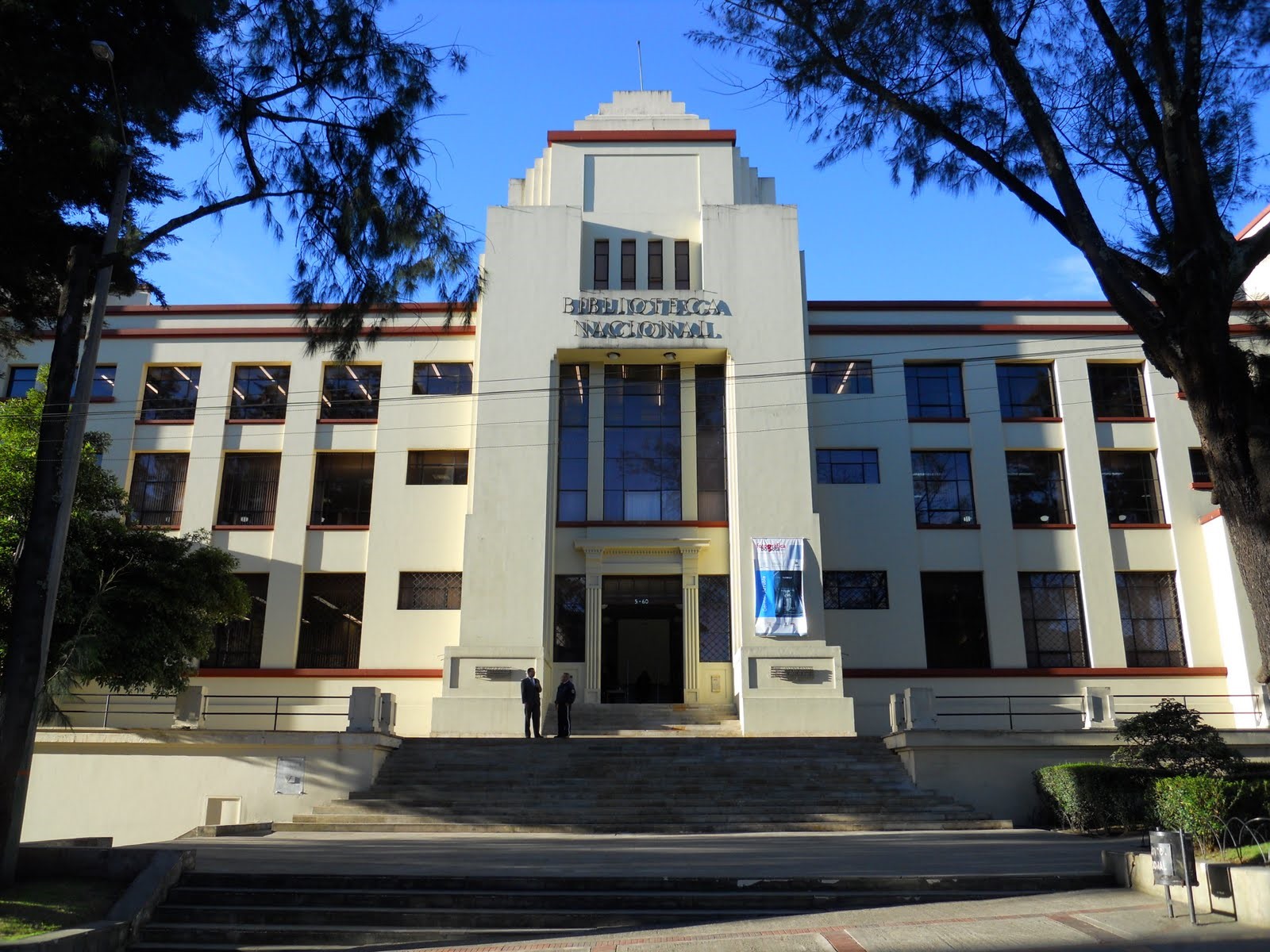
Biblioteca Nacional de Colombia. Foto por: Confidencial Colombia. Agosto 9, 2016.
Este interés surge, principalmente, por el actual proceso de paz que vive Colombia con las FARC, el mayor grupo guerrillero en el país y con mayor alcance militar. Pues, tras más de 50 años de guerra, nuestro país ha comenzado uno de los capítulos más anhelados por la mayoría de los colombianos.
Es importante resaltar que el escenario de producción en Colombia ha tenido un crecimiento importante desde la esfera digital; sin embargo, no hay una excepción en la legislación que le permita a la Biblioteca Nacional de Colombia realizar la preservación de este patrimonio. Además, las implicaciones de realizar la preservación web en casa, teniendo en cuenta que el dominio .co se ha vendido, es usado de manera comercial y su cosecha no garantizaría la salvaguardia de la web colombiana, por esto y teniendo en cuenta la compleja realidad, se ha iniciado un proyecto en alianza con la Universidad Externado de Colombia para la recolección selectiva sobre la producción web de proceso de paz y posconflicto.
A Wish List for the Future of the Digital Preservation Community
Nancy McGovern is Director of Digital Preservation at MIT Libraries in the USA
International Digital Preservation Day got me thinking about this: what might be most helpful for the digital preservation community to be able to continue to grow in a sustainable, inclusive, and responsive way? Here is a brief, annotated wish list for the digital preservation community using four attributes of an emergent group, a sociological convention to enable a group to be identified and studied.
- Membership: members have a sense of belonging to the group and it is possible to recognize other members.
Background: There is a perception that the digital preservation community exists and is growing. So far, the best ways to indicate membership has been attendance conferences and meeting.
My wish: That we identify more and increasingly better ways to be able to “join” the digital preservation community, whatever that may come to mean.
Collaboration is essential for Digital Preservation
Thomas Ledoux is Co-ordinator of Digital Production at the National Library of France
Digital preservation, seen from the outside, may appear as a very technical topic where you only talk about formats, storage, infrastructure and the like.
Indeed, in order to appraise, audit or ingest digital material, a certain degree of technical expertise is needed. But when you follow these steps, it becomes clear that the first requirement is collaborating and building up communities, because what you build should last.
Of course, the first community you need to build is inside your organization: aggregate an internal team. This means you need to define your own goals and start to share a common vocabulary (here is where tools like OAIS or METS can be helpful). A better understanding about the collections and the kind of media you have to deal with is essential. At the same time, you need to pool the means (especially storage infrastructure) so that what you build is sustainable.
The More You Know...
Leslie Johnston is Director of Digital Preservation for the National Archives and Records Administration in Washington DC, USA
One of the greatest challenge for any archive is the multiplicity of file formats. For the United States National Archives and Records Administration (NARA), with several decades of history accessioning and managing electronic records, this is compounded. We received our first transfer of electronic records in 1970!
How do you plan a preservation strategy to account for decades of electronic files? I started by drawing a picture. Not a literal picture, of course, but I wanted to find a way to analyze and visualize what NARA has in its holdings.
NARA has recently completed a file format profile of its electronic records files. Why did we do this? Because we could not plan without first getting a better idea of what we really have. NARA operates under several different regulatory mandates, each with different restrictions on collection schedules and scope, as well as access controls. This led to the implementation of multiple systems--developed over more than 20 years with different technologies--which meant a real challenge in understanding the scope of the holdings.
I worked with the system owners and our IT operations to get the most granular reporting possible on each set: federal, legislative, and individual presidential administrations. The reporting didn’t always match in terms of granularity, given different tooling for the format analysis and report generation, but in the end I was able to compile a record of what we have, what formats we have, and counts. Could we identify every file format with complete certainty? No. Were there decisions in the past about format normalization that I had to take into account? Yes. Will it help me plan for preservation program and technology priorities? Absolutely.
Digital Preservation at Historic Environment Scotland
My name is Hannah Smith and I work for Historic Environment Scotland, based in the digital archive team within the Heritage Directorate. For the first ever Digital Preservation Day I thought I would share some of the progress we have been making in terms of digital preservation at HES, as well as some of the more day to day work in the digital archive. We have been actively collecting digital archive since 2003, receiving both internally and externally generated material. Historic Environment Scotland currently holds more than 437,000 catalogued digital items which equates to around 32TB of archived data. Over the last 2 years, the digital archive has been making huge strides in renewing the technical infrastructure that underpins our work and to ensure the long term preservation of our digital records. Our goal is to provide the best possible care for our digital archives and we are looking to bench mark our services within the European accreditation framework. In 2015 HES invested in new trusted digital repository software, and work has focused on integrating this preservation system with our own repository. We have made huge advances in the standard of care we provide to our digital archive: 617,338 individual digital files have been audited and processed to ensure they conform to appropriate standards.
The Threat of the Double Extinction
Cees Hof is Project Acquisition Manager at Data Archiving and Networked Services(DANS) in the Netherlands
A first glimpse at the DPC ‘Save the Bits’ announcement on the compilation of a list of Digitally Endangered Species confused me when it passed my screen. Further scanning the text only increased this feeling as I encountered more ‘species’ related references, but it soon turned out I was misled by my own biologically biased search image.
It was especially the ‘IUCN Red List of Threatened Species’ that was steering me wrong. A list very familiar to me as a former coordinator of several large Biodiversity data programmes. But the DPC suggested list had nothing to do with plants, animals and microbes soon to disappear from our planet’s surface. It was all about their digital equivalents occupying binary niches and threatened by the lack of proper digital archives, outdated software formats, or insufficient human efforts to safeguard their existence.
Two early episodes on digital preservation… plus one!
José Borbinha works at INESC-ID – Instituto Superior Técnico (IST) at Lisbon University, Portugal
(Episode 1) When unsuccessful digital preservation can be convenient
The year of 1998 was special. In May, it opened the Lisbon World Exposition! In June, it was held the “Sixth DELOS Workshop on Preservation of Digital Information” in the beautiful Tomar. Finally, in October, I became CIO of the National Library of Portugal.
In retrospective, 1998 was my definitive commitment with this great world of digital libraries and archives. A seed has been planted in 1996, when I got involved in the new DELOS Working Group on Digital Libraries, and it blossom in 2000 when I had the privilege of organizing the 4th ECDL conference in Lisbon. DELOS was a community that still brings special memories (“saudade” as we say in Portuguese - https://en.wikipedia.org/wiki/Saudade)










































































































































